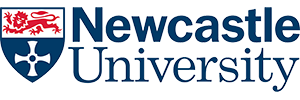Studying in UK
Education System
The UK education system is very similar to the Malaysia system. Both countries have a 13-year schooling system and the Malaysian SPM and STPM are equivalent to the UK’s GCSEs and ‘A’ Levels respectively. Therefore Malaysian students will find it easy to adapt to the UK education system.
Post-sixteen Education (including ‘A’ Levels & equivalent)
After completing compulsory education at the age of sixteen, students may legally leave school and start work. Most, however, study ‘A’ Level or equivalent qualifications as sixth-form students in a school, sixth-form college or college for further education. International students often enter the education system at this point, e.g. taking an ‘A’ Level course in preparation for further or higher education in UK.
Tertiary Education
The breadth and flexibility of the British educational system are exceptional. The UK boasts over one thousand educational institutions including:
- Over 180 tertiary institutions
- Over 500 Colleges of Further Education
- 600 plus boarding schools
Entry Requirements
Foundation Studies
Foundation studies were developed to prepare international students for undergraduate studies at the universities. Usually, this 1-year program is conducted at the university the student plan to attend and the university will hold a provisional place for the student in the undergraduate course.
Academic Requirements for Bachelor Degree
Some universities will specify what subject passes are required before you commence their programmes through their International and/or Admissions Office channels. Some courses may require a higher score (e.g. Medicine, Law).
To apply to study at any UK institution or university beginning with undergraduate programmes, future students must submit applications and documents to the Universities and Colleges Admissions Service (UCAS), however some universities allow you to apply directly from their student portal.
English Language Requirements
Requirements vary according to the institution that you are applying for, but the testing systems which are recognized are:
- International English Language Testing System (IELTS)
- Test of English as a Foreign Language (TOEFL)
- PTE Academic
- Cambridge English Language Assessment (CAE/Cambridge ESOL)
- Other English language qualifications (secondary school English test of English as the medium of instruction)
Expenses
Tuition Fees
International undergraduate tuition fees vary considerably, starting at around £10,000 and going up to £38,000 or more for medical degrees. At all levels, humanities and social sciences degrees tend to cost the least, while laboratory and clinical degree programs are markedly more expensive.
Living Costs
Current UK student visa requirements stipulate that you must have at least £1,015 in your bank account for each month you plan to stay in the UK anywhere outside of London. This works out as £12,180 per year.
If you wish to study in London, you’ll need to budget considerably more – at least £1,265 (~US$1,800) per month, the equivalent of £15,180 a year.
Accommodation
For those coming to the UK for the first time, accommodation provided by the school, college or university might be the most suitable choice.
Application For Admission
Degree Courses
Most UK universities are members of Universities & Colleges Admissions Service (UCAS). Some universities accept applications directly from international students.
For a full-time Undergraduate Course, students may apply up to a maximum of five courses in one UCAS application which is available online at www.ucas.com.
Postgraduate Programmes
At this level, students should apply directly to the university they are interested in. Details of the application procedure will be available from their selected institution.











































